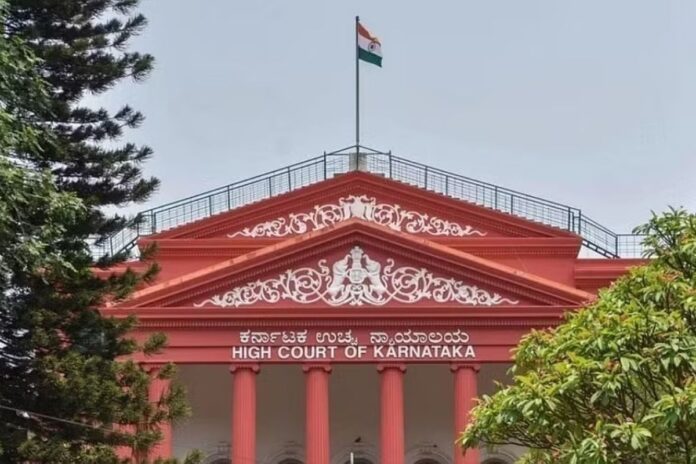Consent of rape-accused father has been deemed immaterial and inconsequential in the adoption process, according to a recent ruling by the High Court of Karnataka. The case involved a rape victim, her mother, and a couple wishing to adopt her child. Justice Hemant Chandanagoudar emphasised that the biological father’s consent is not required when the consent of the minor victim’s mother and her guardian has already been given.
The petition was filed after the sub-registrar in Yelahanka rejected the online adoption application. The reason cited for rejection was that the biological father was not included as an executing party. However, the court highlighted that under the Juvenile Justice (JJ) Act, the consent of the biological father was irrelevant as the consent of the mother and guardian was in place.
The child involved was born to the rape victim when she was just 16 years old. The biological father, who is currently in judicial custody, has been charged under various sections of the Protection of Children from Sexual Offences (POCSO) Act and the Indian Penal Code. Justice Chandanagoudar pointed out that adoption processes for Muslim children are primarily governed by the JJ Act, and the case at hand followed the appropriate legal framework.
Consent of Rape-Accused Father Not Required for Adoption
The court also made it clear that the primary concern under the JJ Act is the welfare of the child, which is guaranteed by the Constitution under Article 39(f). This article stresses the importance of ensuring that children grow up in conditions that allow them to develop in a healthy and dignified manner. Justice Chandanagoudar stated that when the natural guardians cannot provide a safe and nurturing environment, the child essentially qualifies as an “orphan” for all practical purposes, thus making adoption a fundamental right.
Moreover, the court noted that the failure to allow such adoption would deprive the child of their right to live with dignity, which is protected by Article 21 of the Constitution. The adoption process, in this case, is viewed not just as a statutory requirement but as a moral responsibility to ensure the child’s well-being and future development.
Adoption Process Moves Forward Following Court Ruling
Following this ruling, the petitioners and the sub-registrar in Yelahanka have been directed to proceed with the adoption registration. The adoption deed, signed on November 11, 2024, will be forwarded to the jurisdictional district magistrate, who will then send the report to the Central Adoption Resource Authority (CARA). This is part of the procedure under the JJ Act to formalize the adoption and ensure the welfare of the child in their new home.
This ruling reinforces the importance of child welfare over procedural technicalities in adoption cases, particularly in situations where the natural parents are unable or unwilling to care for the child. The Karnataka HC’s decision highlights a shift toward prioritizing the child’s future over the biological father’s consent, in the context of the law’s broader focus on child rights and protection.
The court’s decision has significant implications for adoption cases in similar circumstances, particularly those involving minors who have been victims of crimes. It underscores the importance of acting in the best interest of the child while adhering to the legal provisions aimed at their protection and welfare.

